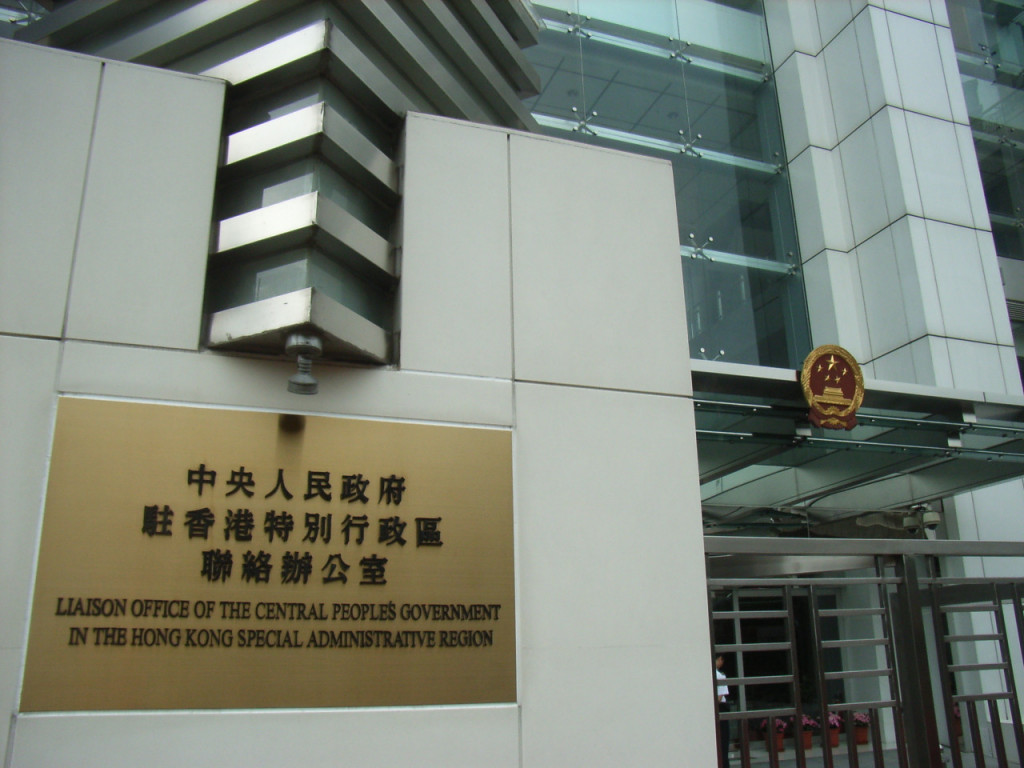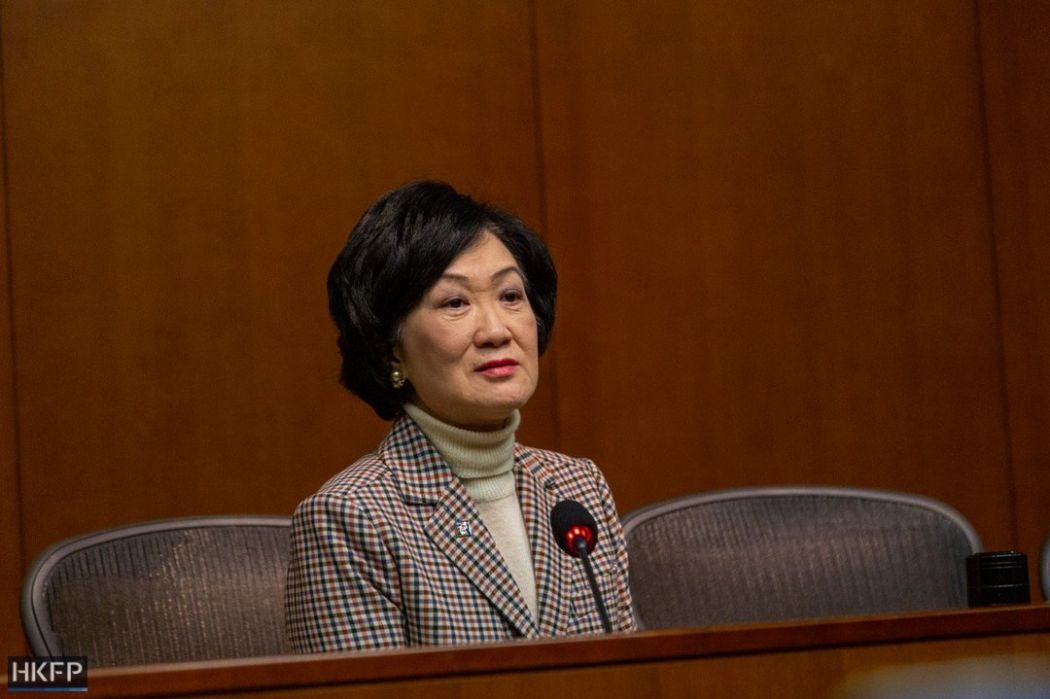The Hong Kong Bar Association has said that Beijing’s agencies in Hong Kong have no power to “supervise” the city’s internal affairs, while pro-democracy lawmakers have demanded clarification from the government on the constitutional status of the liaison office.
In a statement released on Monday, the Bar Association said both the liaison office and the Hong Kong and Macau Affairs Office (HKMAO) are bound by the Basic Law, including being subjected to the prohibition of interference in the city’s internal affairs as set out in Article 22.

“In any event, there is no provision in the Basic Law which confers on the HKMAO and [liaison office] the power of ‘supervision’ over affairs which the HKSAR administers on its own,” the statement read.
The remark came two days after the Hong Kong government revised a statement on Saturday night to exclude the mention of Article 22 from a previous version, while stating that agencies are authorised by Beijing to exercise “supervisory power” on major issues in Hong Kong.
The original statement said the liaison office was set up in Hong Kong by the Central Government under Basic Law Article 22, and its personnel should abide by the laws of Hong Kong. It contradicted a statement by the liaison office last Friday which said Article 22 was not applicable to the offices.
“The recent public statements made by the [liaison office] and the HKSAR Government on such a highly important legal issue have caused deep public unease,” the Bar Association said, adding that the statements were “plainly inconsistent” with what the government said in 2007 and 2018.
The barristers group was referring to a Legislative Council document submitted by the Constitutional Affairs Bureau in 2007, in which the government had listed the liaison office as one of the offices set up in Hong Kong by the Central People’s Government (CPG) under Article 22 of the Basic Law.

The Secretary for Constitutional and Mainland Affairs Patrick Nip also said in a Legislative Council meeting in June 2018 that the government believed that liaison office “will, as always, follow the laws of HKSAR in accordance with the requirement stipulated in Article 22 of the Basic Law.”
Meanwhile, pro-democracy lawmakers slammed the Hong Kong government’s revision as “changing everything overnight” and “kneeling down” to Beijing’s top offices. They also urged the government to explain the inconsistency in its stance.
“If [the government] does not clearly state the role of the liaison office, and whether it needs to respect the laws in Hong Kong, the ‘One Country, Two Systems’ will be lost completely,” said Tanya Chan of the Civic Party.

Citing a press release by the State Council in January 2000, Civic Party leader Alvin Yeung said the duties of the liaison office did not include supervision of the Hong Kong government. He said the supervisory power mentioned in the statements by the agency and the government was an “unauthorised addition.”
“The government should feel embarrassed for overturning its own understanding [of Article 22 of the Basic Law] in the past 20 more years. The pro-establishment lawmakers who defend the statements should be embarrassed too,” Yeung said.
Raymond Chan of People Power added legislators could be disqualified over violation of the Basic Law. He urged courts in Hong Kong to “stand firm” and not allow the liaison office to arbitrarily use the city’s mini constitution as a “weapon” to oust lawmakers and election candidates.
‘Correct understanding’
The pro-establishment camp, on the other hand, agreed that the government should offer an explanation to the changes made in the statements over the weekend, while criticising government officials as being “ignorant” about the Basic Law.

“Government officials from the Constitutional and Mainland Affairs Bureau couldn’t even have a correct grasp of Article 22 of the Basic Law,” said the New People’s Party chair Regina Ip.
Starry Lee, chairperson of the The Democratic Alliance for the Betterment and Progress of Hong Kong (DAB) and Priscilla Leung of Business and Professionals Alliance for Hong Kong both said the panel could hold a meeting to discuss the Basic Law, but the meeting should not solely focus on Article 22.
“[Every article] in the Basic Law is interconnected. If we need to discuss [the Basic Law], please find experts who really know the Basic Law, rather than asking government officials to speak on the matter,” Leung said.
